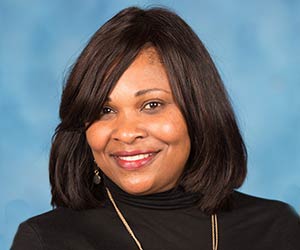
Since its founding, Walden University has been committed to positive social change and creating a community of diverse learners.
As President Jonathan Kaplan recently shared in a blog post last year, Walden created a Diversity and Inclusion Working Group—led by Dr. Savitri Dixon-Saxon, dean of the School of Counseling and the Barbara Solomon School of Social Work and Human Services—that includes faculty and staff from each school and several academic departments. A detailed review of Walden’s activities has led to the development of programs and initiatives to support the university’s diversity and inclusion strategy and efforts, such as a faculty and staff ambassador program that provides feedback on how to support a diverse audience and make the learning environment more inclusive.
With more than 57,000 students* from all over the world, a university is bound to have a diverse community with different perceptions. As Walden aims to create and maintain a welcoming environment for its community to have necessary courageous conversations about current issues and events, it also wants to empower people to stretch themselves to uncover solutions that have meaning and impact.
“We prepare scholar-practitioners to use their knowledge and skills to effect positive social change, but that can also mean challenging the status quo and having difficult conversations in order to effect change,” says Dr. Dixon-Saxon. “There is a need to stop walking on eggshells and instead have these critical discussions.”
Dr. Dixon-Saxon shares the following tips on how to have productive conversations about some of today’s challenging issues in a respectful way:
- Know your facts. People should be informed and learn the facts of an issue before engaging with another. Though often fueled by passion, it’s important not to talk only from feelings when having these types of courageous conversations. When emotions are managed appropriately, objective discussions can occur.
- Have an open mind. Ideologies are informed by opposing opinions. The willingness to hear and understand another person’s perspective can provide useful information during critical exchanges—otherwise, it’s just a courageous monologue.
- Understand your environment. Not every conversation is for every environment. Be cognizant of not only time and space but also to whom you are speaking with. Being aware of others and having high emotional intelligence can positively impact the discussion.
- Come honest and be ready to dig deep. Honesty and self-awareness will help facilitate conversations that lead to positive social change. It’s about stretching yourself to engage in substantive and meaningful discourse.
“Although a lot of people are afraid to talk about certain issues, higher education is meant to be a place where ideas are generated and solutions are uncovered. But that only happens when you’re informed and willing to have philosophical intellectual debates,” says Dr. Dixon-Saxon. “It is incumbent on all of us to be aware of our own biases and expectations, and to seek to address these, ensuring that we all are treated with respect and made to feel a welcomed member of a civilized society.”
—Jen Raider
*Total enrollment as of December 31, 2016.



